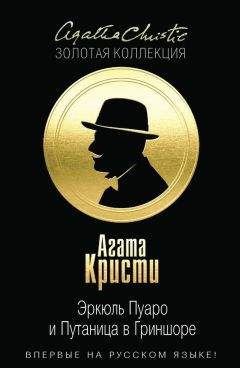Arthur Conan Doyle - Английский язык с Шерлоком Холмсом. Собака Баскервилей
"You have lost one of your boots (у вас пропал один ботинок)?"
"My dear sir," cried Dr. Mortimer (мой дорогой сэр, — воскликнул доктор Мортимер), "it is only mislaid (да он просто /где-то/ затерялся; to mislay — положить не на место; затерять). You will find it (вы /обязательно/ его найдете) when you return to the hotel (когда вернетесь в гостиницу). What is the use of troubling Mr. Holmes with trifles of this kind (какой смысл беспокоить мистера Холмса такого рода пустяками; use — употребление; польза, смысл)?"
"Well, he asked me for anything outside the ordinary routine (ну, он спросил меня о чем-нибудь неординарном)."
"Exactly," said Holmes (совершенно верно, — сказал Холмс), "however foolish the incident may seem (каким бы глупым происшествие не казалось). You have lost one of your boots, you say (у вас пропал ботинок, вы сказали)?"
"Well, mislaid it, anyhow (ну, он /где-то/ затерялся, не иначе; anyhow — так или иначе). I put them both outside my door last night (вчера вечером я выставил их оба за дверь), and there was only one in the morning (а утром там оказался только один). I could get no sense out of the chap (я не смог получить осмысленного ответа у парня; to get out — раскрывать /правду/; sense — чувство; смысл) who cleans them (который их чистит). The worst of it is (худшее из этого /то/) that I only bought the pair last night in the Strand (что я только накануне вечером купил эту пару на Стренде; to buy; Strand — одна из главных улиц в центральной части Лондона), and I have never had them on (и ни разу: «никогда» их не надевал)."
routine [ru:ˈti:n], however [hauˈevǝ], pair [pɛǝ]
Sir Henry smiled.
"I don't know much of British life yet, for I have spent nearly all my time in the States and in Canada. But I hope that to lose one of your boots is not part of the ordinary routine of life over here."
"You have lost one of your boots?"
"My dear sir," cried Dr. Mortimer, "it is only mislaid. You will find it when you return to the hotel. What is the use of troubling Mr. Holmes with trifles of this kind?"
"Well, he asked me for anything outside the ordinary routine."
"Exactly," said Holmes, "however foolish the incident may seem. You have lost one of your boots, you say?"
"Well, mislaid it, anyhow. I put them both outside my door last night, and there was only one in the morning. I could get no sense out of the chap who cleans them. The worst of it is that I only bought the pair last night in the Strand, and I have never had them on."
"If you have never worn them (если вы их никогда не носили; to wear), why did you put them out to be cleaned (зачем вы их выставили для чистки)?"
"They were tan boots (ботинки были желто-коричневые), and had never been varnished (и не начищены; to varnish — лакировать). That was why I put them out (вот почему я их выставил)."
"Then I understand that on your arrival in London yesterday (насколько я понимаю, вчера по приезде в Лондон) you went out at once and bought a pair of boots (вы сразу же пошли и купили пару ботинок)?"
"I did a good deal of shopping (я сделал много покупок). Dr. Mortimer here went round with me (вот доктор Мортимер меня сопровождал; to go round — появляться вместе /в обществе/). You see, if I am to be squire down there (понимаете, если мне суждено стать там видной фигурой; squire — сквайр /помещик, особенно главный землевладелец прихода/) I must dress the part (я должен соответствующе одеваться: «одеваться в соответствии с ролью»; part — часть; роль), and it may be that I have got a little careless in my ways out West (а я, возможно, стал несколько небрежен в этом смысле там на Западе; way — путь; аспект). Among other things I bought these brown boots (среди прочих вещей я купил эти коричневые ботинки) — gave six dollars for them (отдал за них шесть долларов) — and had one stolen before ever I had them on my feet (и один украли, прежде чем я их хоть раз надел на ноги; to steal)."
"It seems a singularly useless thing to steal (/один ботинок/ кажется совершенно бесполезной вещью, чтоб его красть; singularly — в единственном числе; особенно)," said Sherlock Holmes. "I confess that I share Dr. Mortimer's belief (сознаюсь, что разделяю мнение доктора Мортимера; belief — вера; мнение, убеждение) that it will not be long before the missing boot is found (что не много времени пройдет, прежде чем пропавший ботинок найдется)."
varnish [ˈvɑ:nɪʃ], arrival [ǝˈraɪv(ǝ)l], careless [ˈkɛǝlɪs]
"If you have never worn them, why did you put them out to be cleaned?"
"They were tan boots, and had never been varnished. That was why I put them out."
"Then I understand that on your arrival in London yesterday you went out at once and bought a pair of boots?"
"I did a good deal of shopping. Dr. Mortimer here went round with me. You see, if I am to be squire down there I must dress the part, and it may be that I have got a little careless in my ways out West. Among other things I bought these brown boots — gave six dollars for them — and had one stolen before ever I had them on my feet."
"It seems a singularly useless thing to steal," said Sherlock Holmes. "I confess that I share Dr. Mortimer's belief that it will not be long before the missing boot is found."
"And, now, gentlemen," said the Baronet, with decision (а теперь, джентльмены, сказал баронет решительно), "it seems to me that I have spoken quite enough (что я /уже/ достаточно наговорился) about the little that I know (о том малом, что я знаю = о том, чего я почти не знаю). It is time that you kept your promise (время сдержать: «сохранить» ваше обещание; to keep) and gave me a full account (и дать мне полный отчет) of what we are all driving at (о чем мы все тут разговариваем; to drive at — клонить к чему-либо; подразумевать, иметь в виду)."
"Your request is a very reasonable one (ваше требование совершенно справедливо)," Holmes answered (ответил Холмс). "Dr. Mortimer, I think you could not do better (доктор Мортимер, я думаю, вы не смогли бы сделать лучше = было бы лучше всего) than to tell your story as you told it to us (чтобы вы рассказали эту: «вашу» историю, как рассказывали нам)."
Thus encouraged (вдохновленный /этой просьбой/; thus — так, таким образом; to encourage — ободрять, поощрять), our scientific friend drew his papers from his pocket (наш ученый друг вынул бумаги из кармана), and presented the whole case (и изложил: «представил» все это дело) as he had done upon the morning before (/в точности/, как cделал это прошлым утром). Sir Henry Baskerville listened with the deepest attention (сэр Генри слушал с глубочайшим вниманием), and with an occasional exclamation of surprise (иногда /издавая/ удивленные возгласы; occasional — случающийся время от времени, иногда, редко).
quite [kwaɪt], account [ǝˈkaunt], surprise [sǝˈpraɪz]
"And, now, gentlemen," said the Baronet, with decision, "it seems to me that I have spoken quite enough about the little that I know. It is time that you kept your promise and gave me a full account of what we are all driving at."
"Your request is a very reasonable one," Holmes answered. "Dr. Mortimer, I think you could not do better than to tell your story as you told it to us."
Thus encouraged, our scientific friend drew his papers from his pocket, and presented the whole case as he had done upon the morning before. Sir Henry Baskerville listened with the deepest attention, and with an occasional exclamation of surprise.
"Well, I seem to have come into an inheritance with a vengeance (кажется, хорошенькое мне досталось наследство; to come into — входить; наследовать; with a vengeance — более чем достаточно, еще как; vengeance — месть, мщение; with a vengeance — /разг./ здорово; вовсю; чрезвычайно)," said he, when the long narrative was finished (сказал он, когда долгое повествование было окончено). "Of course, I've heard of the hound ever since I was in the nursery (конечно, я слышал о собаке еще с детских лет; nursery — детская /комната/). It's the pet story of the family (это излюбленное предание в нашей семье; pet — домашний /о животном/; любимый), though I never thought of taking it seriously before (хотя прежде, я никогда и не думал воспринимать ее серьезно). But as to my uncle's death (но что касается смерти моего дяди) — well, it all seems boiling up in my head (кажется, все это /так и/ бурлит у меня в голове), and I can't get it clear yet (и я еще ничего не могу понять; to get it clear — понять, разобраться). You don't seem quite to have made up your mind (/мне/ кажется, вы сами не совсем решили) whether it's a case for a policeman or a clergyman (это дело полиции или церкви; clergyman — священник)."
"Precisely (именно; precise — точный)."
"And now there's this affair of the letter to me at the hotel (а теперь еще и этот случай с письмом ко мне в гостинице). I suppose that fits into its place (полагаю, он вписывается в общую картину: «он подходит на свое место»)."
inheritance [ɪnˈherɪt(ǝ)ns], vengeance [ˈvendʒ(ǝ)ns], clergyman [ˈklǝ:dʒɪmǝn]
"Well, I seem to have come into an inheritance with a vengeance," said he, when the long narrative was finished. "Of course, I've heard of the hound ever since I was in the nursery. It's the pet story of the family, though I never thought of taking it seriously before. But as to my uncle's death — well, it all seems boiling up in my head, and I can't get it clear yet. You don't seem quite to have made up your mind whether it's a case for a policeman or a clergyman."
"Precisely."
"And now there's this affair of the letter to me at the hotel. I suppose that fits into its place."
"It seems to show that someone knows more than we do (такое впечатление: «кажется», что кто-то знает больше, чем мы) about what goes on upon the moor (о том, что происходит на болотах; to go on — продолжать; случаться, происходить)," said Dr. Mortimer.
"And also," said Holmes, "that someone is not ill-disposed towards you (и еще, что /этот/ кто-то относится к вам с участием; ill-disposed — плохо расположенный /к кому-либо/, недоброжелательный), since they warn you of danger (поскольку вас предупреждают об опасности)."
"Or it may be that they wish (или, может быть, они хотят), for their own purposes, to scare me away (по своим /каким-то/ мотивам, отпугнуть меня; purpose — намерение, цель; замысел)."
"Well, of course, that is possible also (ну, конечно, и это возможно). I am very much indebted to you, Dr. Mortimer (я в большом долгу перед вами, доктор Мортимер), for introducing me to a problem (за то, что вы предложили мне задачу; to introduce — помещать; знакомить) which presents several interesting alternatives (которая представляет = имеет несколько интересных вариантов /ее решения/). But the practical point which we now have to decide, Sir Henry (но практическая сторона /дела/, с которой мы сейчас должны разобраться, сэр Генри; to decide — решать, делать выбор), is whether it is or is not advisable for you to go to Baskerville Hall (стоит ли вам ехать в Баскервиль-холл или нет; advisable — целесообразный, разумный; to advise — советовать)."




